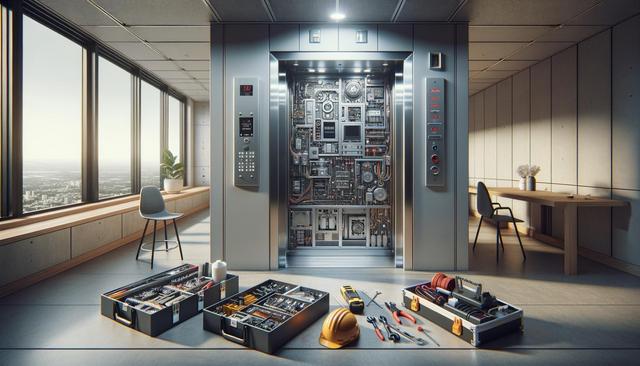What to Expect from an Elevator Mechanic Training Program
Enrolling in an elevator mechanic training program introduces you to a specialized field that blends mechanical skill with electrical knowledge. These programs are designed to equip you with both theoretical understanding and practical experience. Most training pathways include a combination of classroom instruction and hands-on apprenticeships, ensuring you’re well-prepared for real-world scenarios.
The curriculum typically covers a variety of topics essential for the trade. These include:
- Mechanical systems and operations of elevators, escalators, and moving walkways
- Electrical circuit theory and troubleshooting
- Hydraulic and pneumatic systems
- Safety protocols and compliance with local codes
- Blueprint reading and schematic interpretation
Understanding these areas helps you work confidently on installation, maintenance, and repair tasks. The structured nature of the training ensures that you progress from basic concepts to more advanced problem-solving techniques, laying a strong foundation for your career.
Hands-On Experience Through Apprenticeships
One of the most valuable components of elevator repair technician training is the apprenticeship. These on-the-job training periods are often required to become fully licensed or certified. During this time, you work under the supervision of experienced professionals, gaining insight into the nuances of the trade that can’t be fully captured in a classroom setting.
Apprenticeships usually last between four to five years and involve a structured schedule of work hours and classroom learning. You’ll have the opportunity to:
- Work with real tools and systems in live environments
- Understand customer service aspects of the job
- Learn how to diagnose and resolve mechanical and electrical issues efficiently
- Gain exposure to a variety of elevator models and technologies
This practical training is invaluable, helping you build confidence, develop critical decision-making skills, and become proficient in industry-standard practices.
Safety and Compliance Training
Working with elevators involves significant safety responsibilities, both for the technician and the public. Therefore, safety training is a major focus of any elevator mechanic program. You’ll learn how to identify hazards, use personal protective equipment (PPE), and follow safety codes and regulations strictly.
Key safety training components often include:
- Lockout/tagout procedures
- Fall protection and confined space awareness
- Fire safety and emergency response protocols
- Understanding Occupational Safety and Health Administration (OSHA) standards
Adhering to these standards not only ensures your safety but also builds trust with employers and clients. Being well-versed in compliance helps you maintain equipment that meets all necessary legal and operational requirements.
Certifications and Licensing Requirements
To work legally as an elevator repair technician, you’ll likely need to obtain state-level certifications or licenses, depending on where you live. Most training programs prepare students to pass these exams by offering focused review sessions and test preparation materials.
Common certifications and requirements may include:
- Journeyman elevator mechanic license
- National elevator industry certification exams
- Continuing education for license renewal
Certification demonstrates your commitment to the profession and your ability to meet industry standards. It also enhances your employability and can lead to greater job security and advancement opportunities over time.
Career Opportunities and Advancement
Graduating from an elevator mechanic training program opens the door to a variety of career paths. Technicians are needed in residential, commercial, and industrial settings, and the demand continues to grow as infrastructure and technology evolve. Entry-level positions often focus on installation or repair, but with experience, you can move into supervisory roles or specialize in areas such as modernization or inspection.
Some potential career paths include:
- Elevator installer or repair technician
- Maintenance specialist
- Safety inspector
- Project supervisor or field manager
Ongoing training and certifications can further enhance your career, allowing you to stay updated with the latest technologies and regulatory changes. This makes elevator mechanic training a solid investment in a skilled trade with long-term potential.
Conclusion: Building a Skilled and Rewarding Career
For individuals seeking a stable and hands-on career, elevator repair technician training offers a clear and practical path. The combination of classroom knowledge, real-world experience, and safety training prepares you to succeed in a vital industry. Whether you’re just starting out or looking to shift into a new trade, this training provides the tools and credentials you need to thrive. With steady demand and opportunities for advancement, becoming an elevator mechanic represents a smart, long-term career choice for those who enjoy working with their hands and solving technical challenges.




Leave a Reply